Coronavirus Australia live news: Ruby Princess passengers now face TB scare; Infected nurse ‘kept changing her story’
Former passengers of virus-ridden cruise ship issued with another urgent health warning as tuberculosis infection emerges.
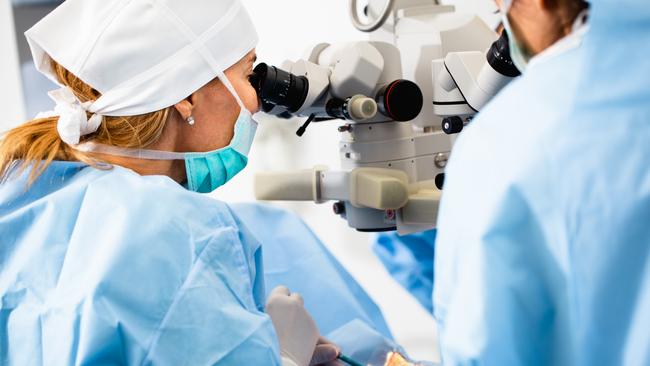
- New health scare for Ruby Princess passengers
- Infected nurse ‘changed her story’
- COVID increases death risk in surgery patients
- Trump terminates WHO relationship
- National cabinet continues post-virus
Welcome to live coverage of the continuing coronavirus crisis. Passengers of the Ruby Princess cruise ship may have also been exposed to tuberculosis, NSW Health warns, as US President Donald Trump terminated the US’s relationship with the WHO, which he said was under the ‘total control’ of Beijing and had not made any reforms in the wake of COVID-19.
Agencies 10.45pm: Russia closes in on 400,000 coronavirus cases
Russia is fast approaching 400,000 coronavirus cases with up to 9000 new infections being identified each day.
Health authorities say the rate of infection in the country is starting to descend.
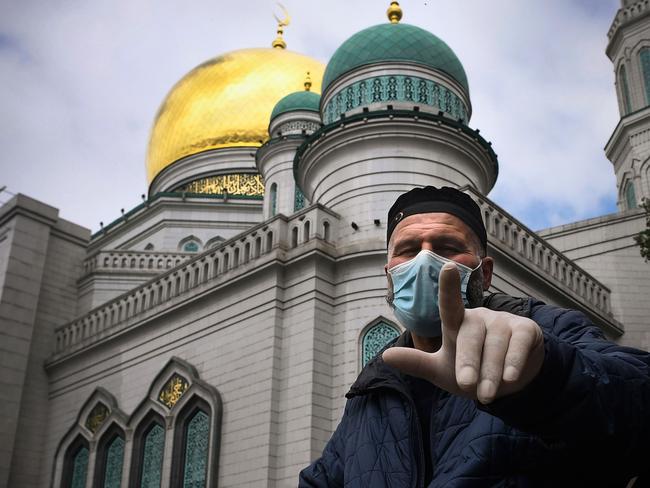
According to the latest figures from the specialist group set up to lead the campaign against COVID-19, there have been 396,575 cases detected in 83 Russian regions.
Some 8950 of those cases were detected in the last 24 hour period, of which 3747 patients, some 41 per cent, were asymptomatic.
A total of 167,469 people have recovered according to Russian officials, equating to one in every three cases. The number of active cases has stabilised since May 25, when it reached a peak of 230,966.
Health officials said 181 people had died from COVID-19 in the last 24 hours. That toll hit a monthly high on Friday.
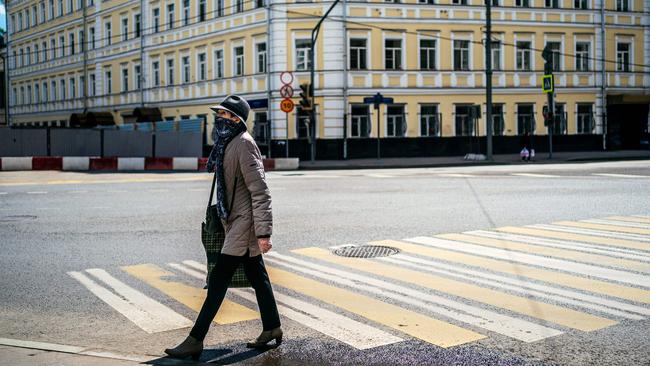
The situation in Moscow, the epicentre of the epidemic in the county, is gradually improving.
Officials in the capital said they had detected 2367 new cases and 78 deaths in the last 24 hours. Some 178,196 cases in Russia were registered in Moscow. — EFE
READ MORE: Infected nurse ‘kept changing her story’
Agencies 8pm: No new NSW cases despite 9500 virus tests
With no new cases and no patients on ventilators, NSW has reached two major COVID-19 milestones in the run-up to a significant easing of restrictions.
Zero coronavirus cases were recorded from the 9500 tests examined in the 24 hours to 8pm on Friday — a mark not reached for a fortnight. NSW Health said in a statement on Saturday the only patient left in intensive care no longer needs ventilation while just 70 others are being treated by health authorities.
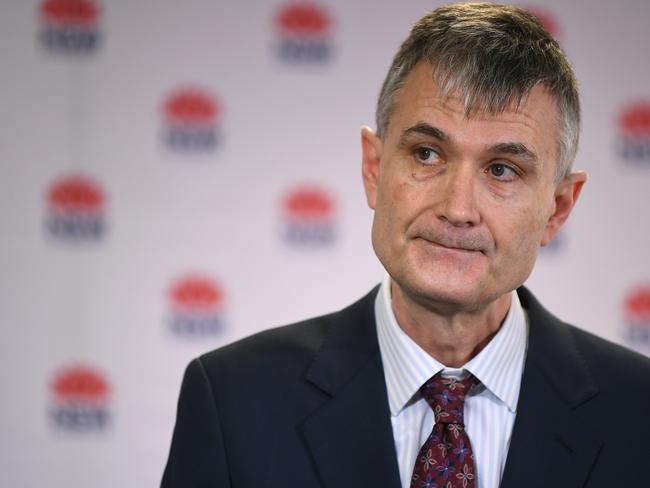
Some 359 of the 3092 cases in the state remain active. But despite NSW uncovering only 11 cases in the past 11 days, authorities warn it remains essential all stay 1.5 metres from each other and regularly wash hands.
“The virus is likely circulating among people in the community with mild symptoms,” NSW Health’s Dr Jeremy McAnulty said.
“The risk of outbreaks and a resurgence of cases remains real.”
From Monday, pubs and restaurants can have up to 50 customers while intrastate holiday travel will be permitted.
Museums, galleries, libraries and beauty salons will reopen while up to 20 people will be allowed to attend weddings. Funerals and places of worship can have up to 50 people.
READ MORE: Paul Kelly — No certainties as PM goes for trifecta
Nicole Winfield 7.20pm: Italy water pollution drops markedly during lockdown
Pollution from human and agriculture waste spilling into the seas off Rome has decreased 30 per cent during Italy’s coronavirus lockdown, preliminary results from a nationwide survey of seawater quality indicate.
Authorities stressed it was too soon to give the lockdown sole credit for the change, saying that shifting sea currents and limited rainfall in April and May also could have been responsible for reduced runoff of livestock and fertilizer waste.
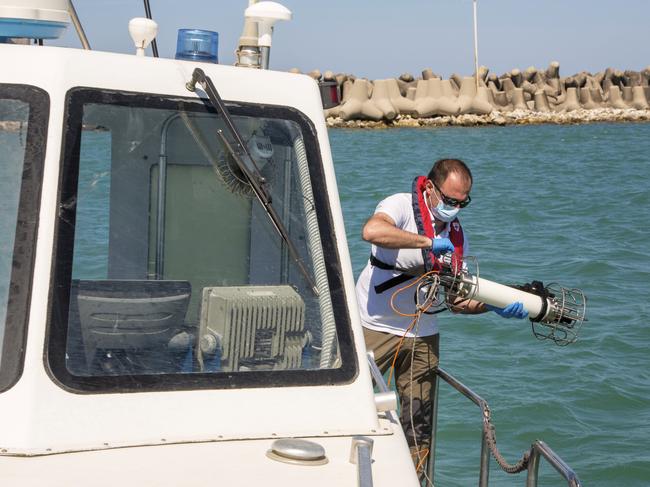
But Marco Lupo, director general of the Lazio region’s environmental agency, hypothesized that the evaporation of tourism starting in March could have reduced the amount of sewage produced by the 30 million tourists who normally visit Rome each year.
In addition, the lockdown meant Italians couldn’t flock to their seaside vacation homes as they normally would in spring, a phenomenon that typically overwhelms local water treatment plants and results in increased pollutants spewing into the seas, Mr Lupo said.
READ MORE: Peter van Onselen — Cautious steps get the boot
Dow Jones 5.35pm: New York drives back COVID’s deadly march
New York, the US state hardest hit by the new coronavirus, reached a milestone in its fight against the contagion this week as it drove down death and hospitalization rates to levels not seen since the start of the pandemic.
A two-month lockdown, strict social-distancing rules and a steep learning curve at hospitals have led to a steady drop in deaths related to the virus over the past month, with a three-day rolling average this past week of about 74 deaths a day. It was a return to levels last seen on March 22, and far from April 8, when the state registered a record 799 deaths in a day.
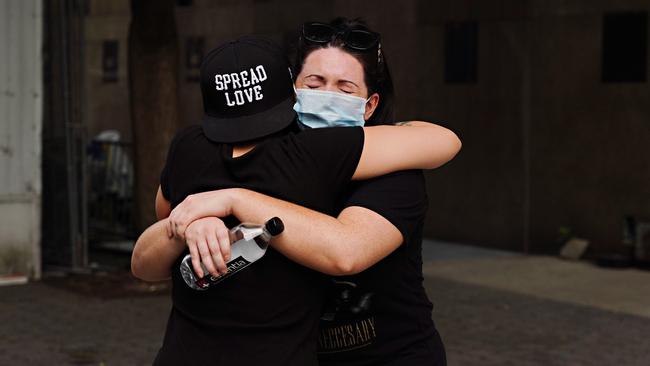
The New York City metropolitan area had a lower daily rate of COVID-related deaths per 100,000 residents than 17 other urban areas, such as Boston and Philadelphia, based on a seven-day moving average as of May 27, according to data from Johns Hopkins University analysed by The Wall Street Journal.
New York state’s daily number of new hospitalizations, intubations and new cases are down statewide, too. Five regions in the state that weren’t as badly hit by the virus began a phased reopening on May 15, relaxing lockdown measures that were implemented on March 22.
READ MORE: Shipyards sail through coronavirus crisis
Agencies 4.55pm: Livestock ship crewman tests positive in WA
No new active coronavirus cases have been detected in Western Australia but a historical case has been detected among the crew of the plagued Al Kuwait livestock ship.
The man, who was identified as having a previous illness, underwent serology testing and it was confirmed he had previously been COVID-19 positive. He is no longer infectious.
WA Health says the testing forms part of a thorough investigation to determine potential sources of the virus onboard the Al Kuwait.
A further 20 crew members remain active carriers of the virus. The Al Kuwait docked in Fremantle on May 22 with 48 crew on board. All but 10 are in quarantine in a Perth hotel, and the remaining skeleton crew have tested negative but may be tested again.
No positive results have emerged so far from seven port and quarantine workers who boarded the infected live export ship after it docked in WA. The workers include a Fremantle Port Authority pilot and a trainee who steered the vessel into harbour.
All were wearing personal protective equipment.
Sanitising of the ship began on Thursday and talks are under way to have the sheep, currently held in feedlots, exported to the Middle East. Sending them to local abattoirs is considered a last resort. WA has a total of 25 active cases including one local, four people from interstate and 20 from overseas.
There are no confirmed COVID-19 patients in Perth hospitals.
READ MORE: Chris Kenny — Harsh truths in a post-COVID world
Agencies 4.15pm: Victorians warned not to go overboard as rules ease
Victorians are preparing for a significant loosening of coronavirus restrictions on Monday June 1.
Cafes, restaurants, libraries, galleries, museums, amusement parks, places of worship, beauty clinics, nail salons and massage parlours will be allowed to reopen with no more than 20 people inside.
The state’s Chief Health Officer Brett Sutton has warned life cannot return to normal yet.
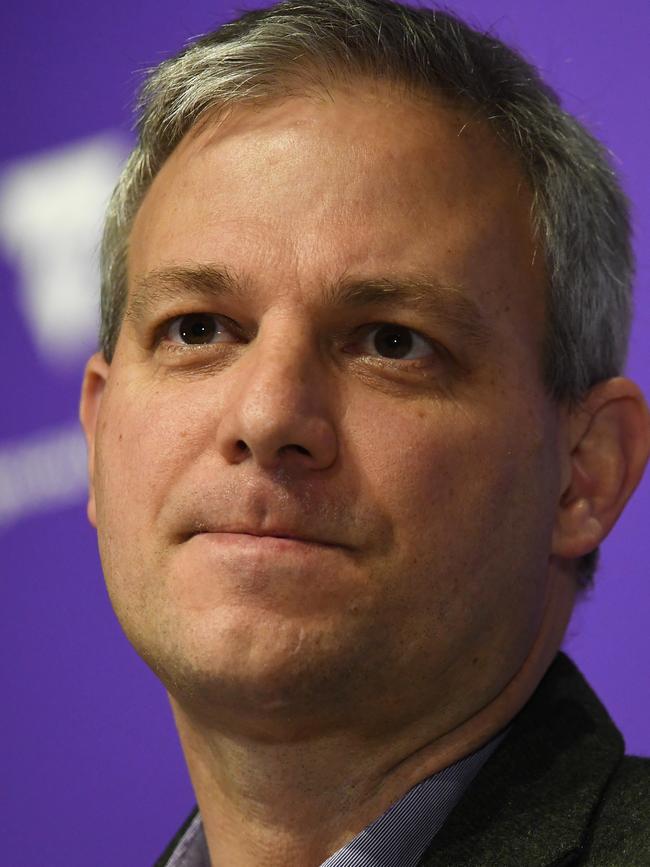
“People by-and-large are listening but I’m concerned about certain quarters of the community who aren’t getting the message, who are reflecting on the fact that we’re easing some restrictions and are thinking we’re back to normal,” he told reporters.
“We are not back to normal. Nowhere in Australia will be back to normal for some time.”
READ MORE: India, Indonesia stand by anti-malarials
Agencies 3.25pm: Protesters claim virus ‘a scam’
Hundreds of demonstrators in Australia’s largest capitals have defied social- distancing rules, claiming the COVID-19 pandemic is a “scam”. Anti-vaccination protesters faced-off against the police, waving placards such as “5G = communism”.
The rallies came as restrictions continue to be eased across the country with new coronavirus infections remaining extremely low by international standards. These easing of restrictions will be put to the test over this weekend and next as Australians enjoy public holidays.
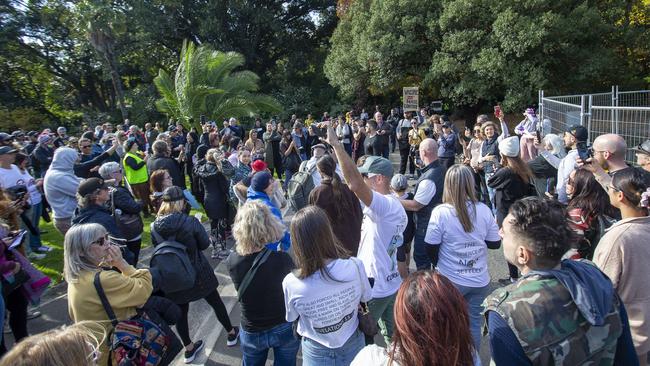
Canberra, for example, is opening gyms and health facilities as well as galleries, museums and other attractions from Saturday, ahead of its public holiday on Monday.
Most state and territory leaders told a national cabinet meeting on Friday they were hopeful of implementing stage three of eased restrictions by the end of July.
READ MORE: Back to work, but it’s different this time
Imogen Reid 2.25pm: Now a TB health scare for Ruby Princess passengers
Former passengers of the virus-ridden Ruby Princess cruise ship have been issued with another urgent health warning after a crew member was diagnosed with tuberculosis this week.
The crew member from the vessel that led to one of the country’s biggest COVID-19 outbreaks is being treated in Sydney’s Royal Prince Alfred Hospital for TB, a contagious lung disease.
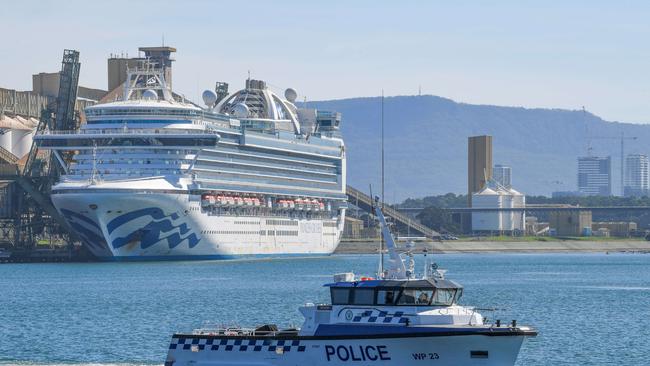
NSW Health has said those at risk of infection include some hospital staff, roommates, close friends and workmates.
Fellow passengers from the Ruby Princess have been notified they are at a low risk of contracting COVID-19.
Tuberculosis is spread after close and prolonged contact with the infected person, rather than casual exposure.
Most commonly affecting the lungs, it is recorded in Australia about 1200 times a year.
In a letter to passengers dated Saturday, Health Protection NSW’s Dr Christine Selvey said Ruby Princess passengers do not need to be screened at this time. “Most importantly, there is no reason to believe you are at increased risk of contracting tuberculosis from being on the cruise ship,” Health Protection NSW’s Dr Christine Selvey said in a letter published by Network Ten. The Ruby Princess has been linked to more than 20 coronavirus deaths and 600 infections across Australia, including a cluster in Tasmania.
READ MORE: Cabin fever — on board the Ruby Princess
Imogen Reid 2pm: Police Minister backs ongoing border closures
Queensland’s Police Minister Mark Ryan has backed Premier Annastacia Palaszczuk’s decision to keep the state’s borders closed off to interstate visitors.
“At the end of the day, protecting our borders are protecting lives,” he said.
“The Deputy Commissioner’s got some statistics around that, but the strong approach that the Queensland government has taken, based on expert medical and health advice, has saved lives and it’ll continue to save lives.”
A new survey by the Australian Institute found more than three quarters of its respondents support the restrictions limiting travel across state borders.
Out of the 1005 Australian’s surveyed, 88 per cent in Western Australia, 78 per cent in Queensland, 76 per cent in Victoria and 70 per cent in NSW said they supported interstate travel restrictions.
“The strong support for state border closures shows that while there is much public relief with some public health restrictions lifting, there is also still much community concern regarding the spread of COVID-19,” the institute’s executive director Ben Oquist said.
With AAP
READ MORE: One step closer to stepping out for a meal
Imogen Reid 1.30pm: Labor ‘disappointed’ at WHO decision
Labr has called Washington’s decision to cut ties with the World Health Organisation “deeply disappointing”.
In a joint statement, Opposition foreign affairs spokeswoman Penny Wong and health spokesman Chris Bowen said the Morrison government should urge the US to reconsider.
“As we have previously acknowledged, there is considerable room for improvement at the WHO, but that improvement will not happen by walking away or asking it to do more or less,” the statement reads.
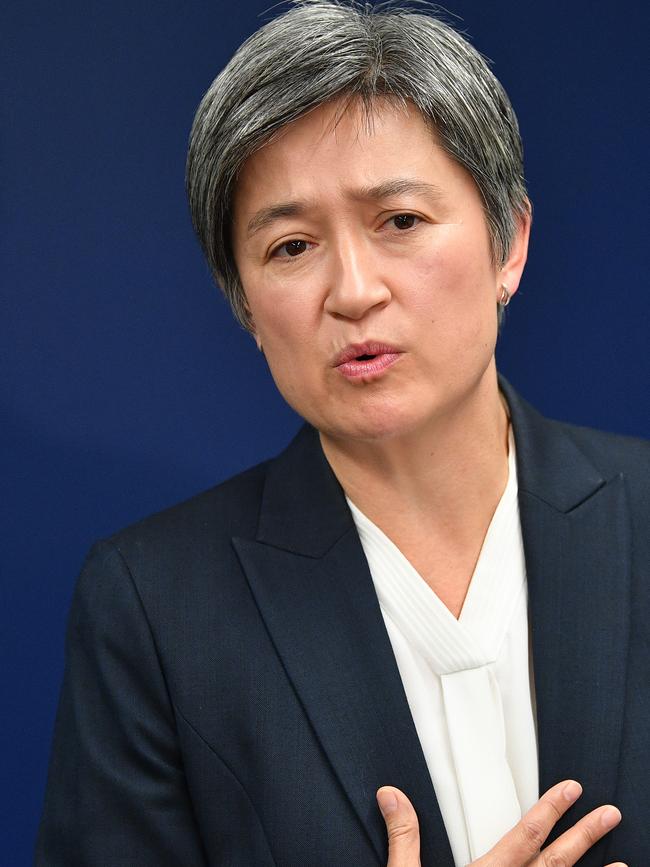
“The Australian government should urge the United States to reconsider its decision to work with other Member States to ensure adequate funding for the WHO to continue to perform its important role.”
“Now, more than ever, the world needs a strong, effective and well-resourced WHO… perceptions of national influence over international organizations diminish the standing and capacity of those organisations — to everyone’s detriment.”
READ MORE: Gerard Henderson — Group hugs no substitute IR reform
Imogen Reid 12.55pm: ‘WHO has full support of scientific community’
Professor Peter Doherty from the Doherty Institute has weighed in on President Donald Trump’s decision to terminate the United State’s relationship with the World Health Organisation in a series of tweets, saying the WHO has the “full support of the scientific community”.
The WHO has the full support of the scientific community. https://t.co/NIWOAZuIaM
— Prof. Peter Doherty (@ProfPCDoherty) May 30, 2020
Professor Doherty joins experts from around the world voicing their support for the organisation, who argue it is playing a “central role” in crushing the virus.
“The many roles of the WHO in coordination, evaluation and information dissemination are central to the global fight against COVID-19,” he wrote.
The many roles of the WHO in co-ordination, evaluation and information dissemination are central to the global fight against COVID-19. https://t.co/cftBG2nwab
— Prof. Peter Doherty (@ProfPCDoherty) May 30, 2020
Dr Stephen Griffin, an associate professor in the School of Medicine at the University of Leeds said there is no logic to the move made by President Trump.
“Pandemics are, by definition, a global crisis. To not face COVID-19 with a united front seems futile,” he said.
“Given the scale of the outbreak in the US, this action appears nothing short of an attempt to refocus attention away from how this has been handled.”
President Trump said the US would also suspend entry for some Chinese foregin nationals the US views as a security risk and roll back some of the special preferences the US has granted Hong Kong.
READ MORE: Trump terminates relationship with WHO
Michael McKenna 12.20pm: Qld Health chief accuses sick nurse of changing story
Queensland’s Chief Health Officer has accused a nurse of changing her story “many times” amid an investigation into her work at an aged-care facility while sick, as authorities attempt to determine if she is the source of Australia’s youngest COVID-19 death.
The nurse, already under investigation after she continued to work at a Rockhampton aged-care facility while sick and waiting on a COVID-19 test result earlier this month, failed to disclose an overseas trip. It was only on Thursday that officials discovered she had travelled to Kuala Lumpur in late March.
Authorities are trying to determine if she was the source of the infection of Nathan Turner, 30, found dead on Tuesday by his fiancee at their home in the mining town of Blackwater, with a test later indicating he was carrying the virus.
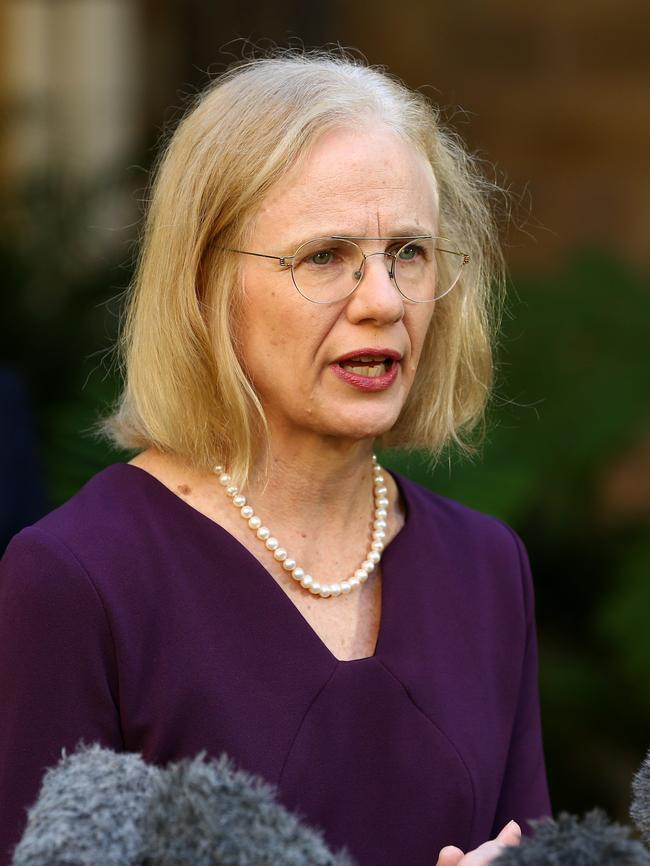
In a statement, Queensland Health said the nurse, who has not been identified, had previously disclosed driving to Blackwater “in the second week of May but did not interact with other individuals there’’.
The Australian reported she said she had gone to the town of about 5000 to “watch the sunrise”.
The organisation representing her, the Nurses Professional Association of Queensland, disputed the claim that she had been in Blackwater early this month. Instead, an NPAQ spokesman said the nurse had visited the town on April 11 — weeks before Mr Turner began showing symptoms.
Read the full story here.
Matthew Westwood 11.55am: ‘Arts must follow NRL’s lead if theatres to reopen’
The performing arts must take the lead and set out terms for a safe return to the theatre, as the NRL has done with its successful reboot of the 2020 sport season, says Opera Australia chief executive Rory Jeffes.
While theatres remain closed, companies such as OA — which last year earned $73.6m from ticket sales, more than half its revenue — risk running out of cash and may not survive.
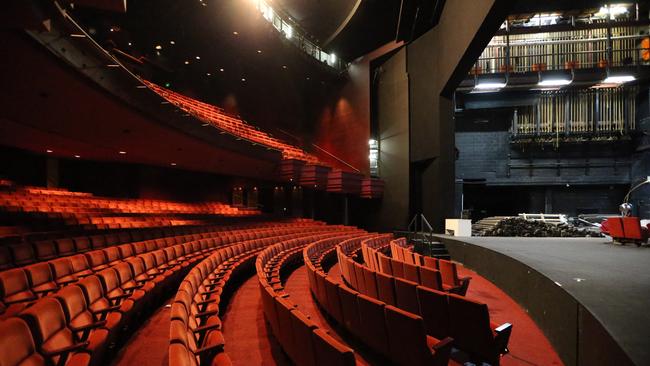
Mr Jeffes said the performing arts depended on a return to public performance. “If we as a sector sit and wait to be told when we can go back into theatres, and on what terms, then it will be forever,” he said. “If we learn from the outcomes of the NRL, in how you go about forging your own way of doing it, and bring the government with you, then I think we have a hope of getting back into theatres in a reasonable timeframe.”
Read the full story here.
Imogen Reid 11.30am: NSW active cases down to just 71
There have been zero new cases of COVID-19 recorded in New South Wales overnight, with just 71 active cases remaining in the state.
The state health authority says 9,452 tests were conducted yesterday, taking the total number of tests to 494,000 since the beginning of the outbreak.
READ MORE: Paul Kelly — Morrison’s Liberal departurure is sink or swim
Imogen Reid 11am: Melbourne primary school student tests positive
Children from a primary school in Melbourne’s north west have been quarantined for two weeks after a student tested positive to COVID-19.
Victorian health authorities say the child from a Grade Two class at Holy Eucharist Primary School in St Albans was not showing symptoms of the virus while at school.
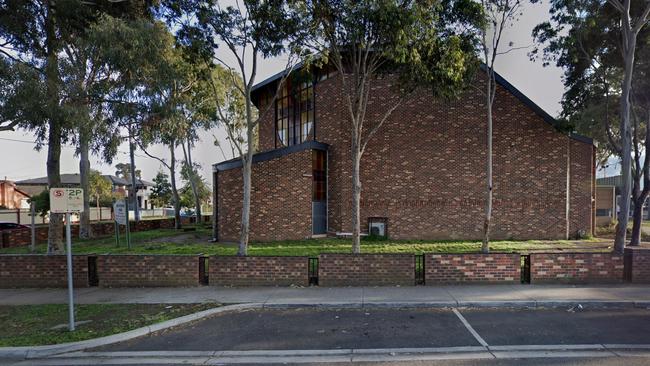
It is believed the case is linked to a cluster which is associated with a student at Keilor Downs Secondary College. A further six students from Taylor Lakes Secondary College and one student from St Albans Secondary College are understood to have contracted the virus while attending a class at Keilor Downs.
Victoria has recorded 11 additional cases overnight.
READ MORE: After lockdown, families seek more space
Imogen Reid 10.30am: Probe continues into Nathan Turner’s infection
Queensland has recorded zero new cases of coronavirus, with only six active cases reported on Saturday. The state’s total number of COVID-19 cases is 1058.
Meanwhile, investigations into the death of 30-year-old Nathan Turner continue as authorities work to determine the source of his infection.
Saturday, 30 May – coronavirus cases in Queensland:
— Annastacia Palaszczuk (@AnnastaciaMP) May 29, 2020
• 0 new confirmed cases
• 6 active cases
• 1,058 total confirmed cases
• 192,062 tests conducted
Sadly, seven Queenslanders with COVID-19 have died. 1,045 patients have recovered.#COVID19 pic.twitter.com/TWUqHsn0ZG
A nurse at the centre of two coronavirus scares in the state has said it is impossible she infected the miner, after failing to declare her overseas travels ahead of her diagnosis.
Mr Turner became the youngest Australian to succumb to the virus on Tuesday. He suffered chronic illnesses and was later found to have coronavirus.
Deputy Premier and Health Minister Steven Miles says a formal investigation will reveal why the nurse did not reveal she had travelled to Kuala Lumpur, in Malaysia, in March.
“It appears to be incredibly unlikely that somebody wasn’t asked if they had travelled overseas when that is such a focus of our investigation efforts for all coronavirus cases,” he said on Friday.
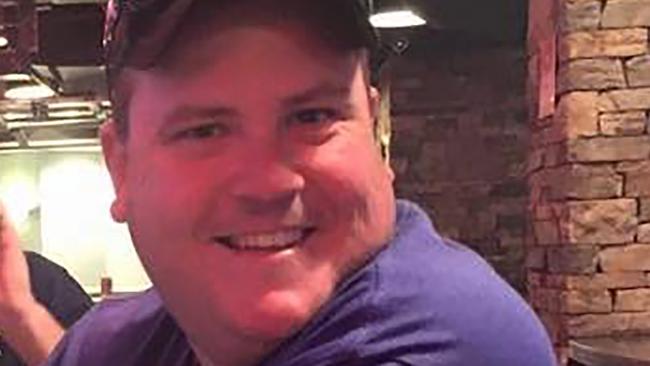
“It’s incredibly disappointing that someone would even lie to public health officials, their motivations are simply to keep Queenslanders safe.”
Mr Miles urged all Queensland residents to be honest if they are contacted by health officials.
“When a public health officer contacts you, it is important you are honest, truthful and fulsome with what you tell them,” he said.
“Lives are literally at risk.”
With AAP
READ MORE: Nathan Turner’s death ‘not my fault’, says nurse
Patrick Commins 9.50am: Rescue package puts the deficit at $40bn
The federal budget deficit has blown out to $40bn over the financial year to April, as the Morrison government ploughed an extra $12bn into the economy to help keep households and businesses afloat through the COVID-19 crisis.
The latest figures from the Department of Finance reveal the additional cost of programs such as the $750 one-off welfare payment to households, as well as the boost to business cash flow program. Evidence of the rapidly deteriorating budget deficit — which experts believe will push well above $100bn in this and the next financial years — came as Scott Morrison on Friday said he “anticipated” that the government stimulus would continue for “quite some time”.
The surge in spending was accompanied by a $20bn collapse in tax receipts for the financial year to date versus what had been expected in the government’s mid-year budget update in late 2019.
Read the full story here.
Agencies 9.15am: Libraries, museums to help COVID recovery
Australia’s cultural institutions will play an important role in the nation’s COVID-19 recovery as states and territories set about easing more restrictions in June.
Public libraries, museums and galleries have been shuttered since March after they were deemed non-essential during the coronavirus pandemic. Some states have moved to reopen them and others are set to follow.
Libraries will provide support for people affected by job losses helping them upskill to help get them back into work post-pandemic.
“We have people coming through to do short courses and informal training, particularly around technology, which helps them get back into the workforce if they’ve been away for a period of unemployment,” Australian Library and Information Association (ALIA) CEO Sue McKerracher told AAP. Small businesses and entrepreneurs could also benefit from library resources, Ms McKerracher said.
READ MORE: Graduations are now more emotional
Angelica Snowden 8.30am: Surgery patients at greater risk of dying
Patients undergoing surgery after contracting coronavirus face an “extraordinarily high” risk of death, a new study has revealed.
The study found that mortality rates of COVID-19 infected patients who underwent surgery were very high, even after minor surgery.
Royal Australasian College of Surgeons Clinical Director Professor David Watson said the research showed Australia and New Zealand could suffer a spike in deaths if a second wave of the virus were to hit.
“If infection rates are allowed to climb and a second wave adversely impacts our countries, high rates of death can be expected in Australia and New Zealand,” Mr Watson said.
“Important surgery will almost certainly need to be cancelled as the risk of death is likely to be excessive,” he said.
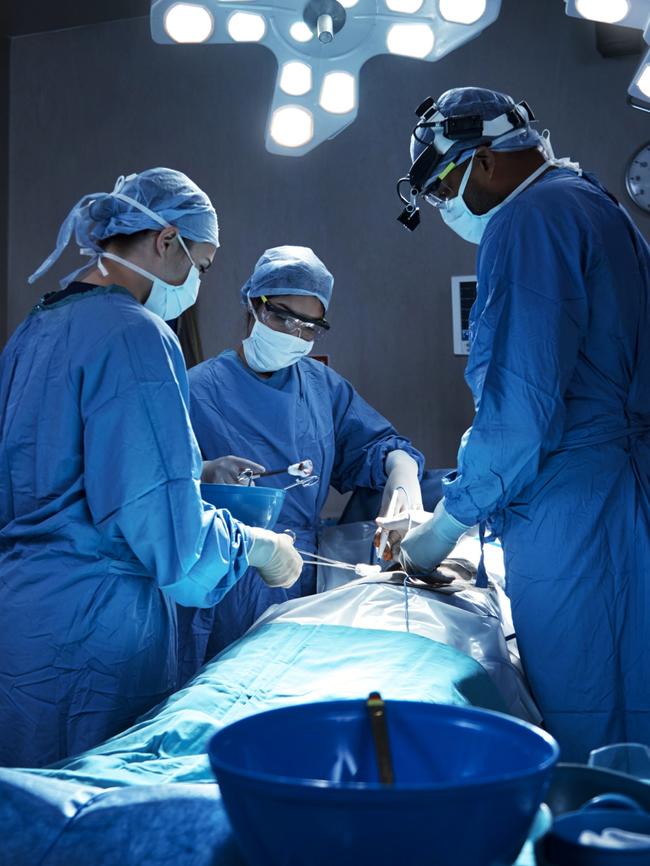
The study, conducted with 1,128 patients across the globe but mostly in Europe, revealed that almost a quarter of the patients who underwent surgery died within 30 days of their procedure.
High rates of death were seen across all types of surgery subgroups, including elective surgery where 18.9 per cent of patients died and emergency surgery where 25.6 per cent of patients died afterwards.
Just over a quarter of patients who needed minor surgery such as an appendicectomy or hernia repair died and just over a quarter of patients who underwent major operations, such as hip surgery or colon cancer surgery, died.
Mortality for patients who have minor or elective surgery are usually under one per cent
The study reported that this death rate was “extraordinarily high” and called for changes to recommendations for surgery in communities with high rates of SARS-CoV-2 infection.
The news came after Australia’s Chief Medical Officer Brendan Murphy said elective surgery is nearly “back up to normal” since it was suspended on March 25 to ensure hospital’s could cope with a possible influx of COVID-19 patients.
“Our health system is now getting back to business as usual,” Dr Murphy said.
“Elective surgery is heading right back up to normal in a number of jurisdictions and people are starting to go back to the doctor and the clinic and that is all great,” he said.
The study also showed that death rates were 50 per cent higher in men (28.4 per cent) than women (18.2 per cent).
Death rates were two and a half times higher in elderly patients aged over 70 (33.7 per cent) compared to those aged under 70 (13.9 per cent).
Gold Coast University Hospital surgeon Philip Townend said if a second wave of infections hit Australia the government should suspend some surgeries again.
“We are fortunate that the prompt action taken by governments in Australia helped us avoid the high infection rates reported in other parts of the world,” Dr Townend said.
“This data shows how important it is that in Australia, if we are faced with a second surge of infections, that we reorganise surgery again to minimise the risk that we will operate on infected people,” he said.
“Patients with COVID-19 infection should only have surgery if all other options have been exhausted.”
READ MORE: States risk fresh wave of infections
Mike Sisak 7am: New York cop faces charges over violent arrest
A New York City police officer will face disciplinary charges for a violent arrest during a social distancing enforcement action that ended with him kneeling on a man’s back or neck, a technique similar to the one that led to George Floyd ’s death in Minneapolis.
Several other officers involved will also face discipline, the department said Friday, after an internal affairs investigation into the caught-on-video confrontation May 2 in Manhattan’s East Village. Police did not specify what violations the officers are alleged to have committed.
We all saw it in the video of Donni Wright's arrest earlier this month. He got a knee to the neck because he called out a similarly violent arrest. https://t.co/MPCAfo1cN6
— Ari Ephraim Feldman (@aefeldman) May 26, 2020
Bystander video showed plainclothes officer Francisco Garcia pulling a stun gun on 33-year-old Donni Wright at a crosswalk, slapping him in the face and punching him in the shoulder before dragging him to a sidewalk and kneeling on his backside to handcuff him.
Garcia was stripped of his gun and badge and placed on desk duty after the incident, which Mayor Bill de Blasio called “very troubling” and “absolutely unacceptable.” He could still face criminal charges.
No one is above the law in our city, not even those charged with enforcing it. The NYPD has concluded its internal investigation to the incident in the East Village on May 2nd and the officers involved will face discipline.
— Mayor Bill de Blasio (@NYCMayor) May 29, 2020
READ MORE: Cameron Stewart — Minneapolis burns with rage, confusion
Agencies 6.30am: 13 infected at Colombian presidential palace
Thirteen people who work at the presidential palace are infected with the coronavirus, the Colombian government says.
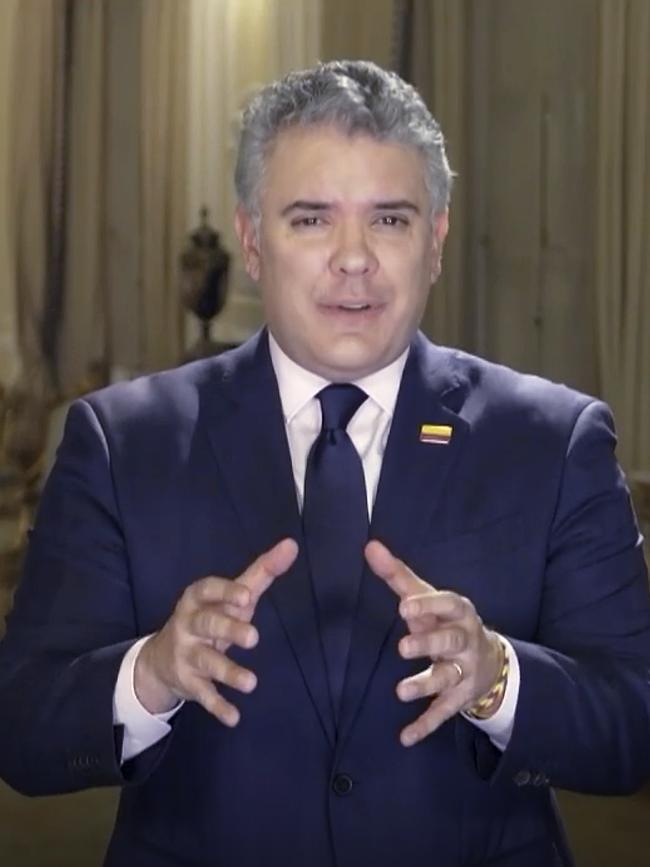
Tests on President Ivan Duque and staff members who have frequent close contact with the head of state found no trace of COVID-19, officials said.
Five of the infected people belong to the Administrative Department of the Presidency, while the other eight are security guards at Casa de Narino. All 13 of those individuals are self-isolating in their homes. Doctors are monitoring the condition of the 13 infected employees and the pandemic health-safety protocols remain in effect, limiting to 20 per cent the proportion of the staff present in the palace on any given day.
The pace of COVID-19 contagion in Colombia has accelerated and a record 1262 new cases were confirmed on Thursday, bringing the total to 25,366. Colombia’s death toll from the illness stands at 822. — EFE
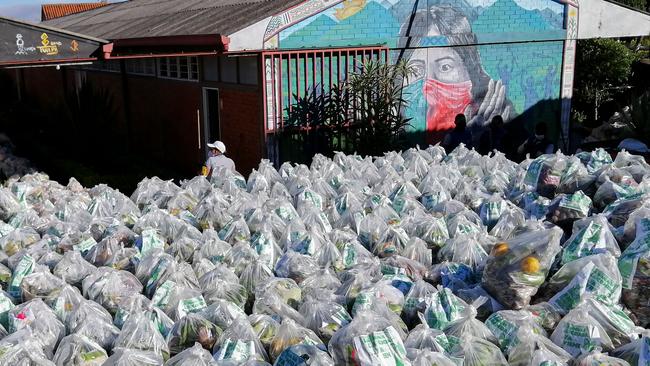
READ MORE: Investors run scared as infection shakes markets
Daniel Sankey 5.20am: US splits with WHO as Trump strips Hong Kong
The United States will reverse Hong Kong’s special customs status and bar “certain foreign nationals from China” as President Donald Trump hit back over new security plans for Hong Kong.
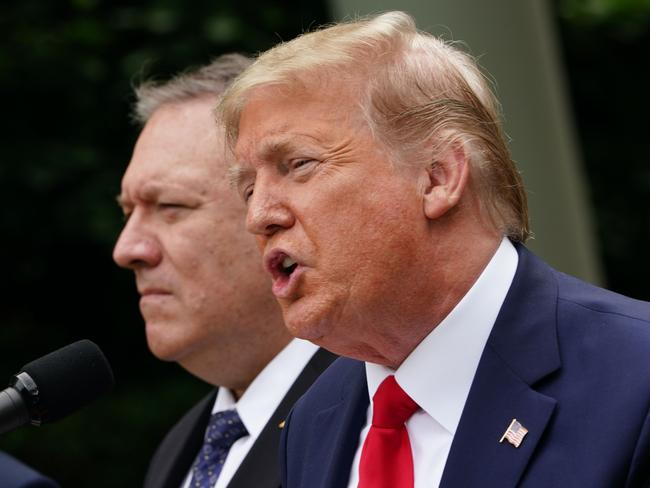
In a press conference at the White House this morning (AEST), Mr Trump also said the US would terminate its relationship with the World Health Organisation, which he said had not made any reforms in the wake of the deadly coronavirus.
“Because they have failed to make the requested and greatly needed reforms, we will be today terminating our relationship with the World Health Organisation,” Mr Trump said.
“We will be redirecting those funds (previously allocated to the WHO) to other worldwide and deserving urgent global public health needs.”
Mr Trump said China had “broken its word” on Hong Kong, with the institution of new powers to quash unrest “diminishing the city’s longstanding and very proud status.”
“This is a tragedy for the people of Hong Kong, the people of China, and indeed the people of the world,” he said.
CHINA!
— Donald J. Trump (@realDonaldTrump) May 29, 2020
“I am directing my administration to begin the process of eliminating policy that gives Hong Kong different and special treatment.
“This will affect the full range of agreements, from our extradition treaty to our export controls on dual-use technologies and more, with few exceptions.”
READ MORE: Jack the Insider — Coronavirus fails to hit the big targets
Rosie Lewis 5am: Permanent national cabinet to continue post-virus
Australia’s federation will undergo its biggest shake-up in almost 30 years after Scott Morrison and state and territory leaders agreed to embrace a permanent national cabinet and abolish decades of bureaucratic red-tape.
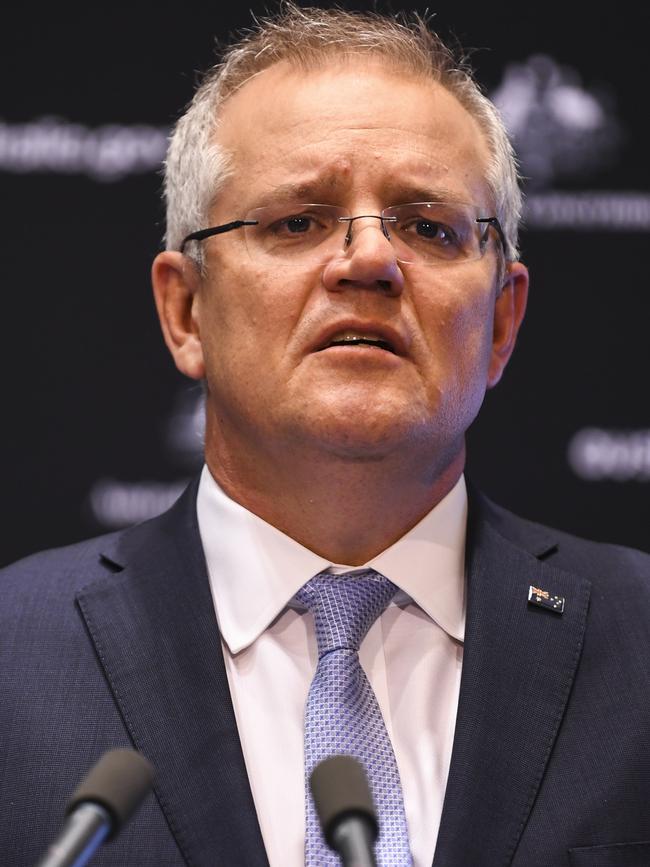
The old, committee-bound Council of Australian Governments, established by Paul Keating in 1992, will be swept away in favour of a forum that allows leaders to negotiate directly with each other and has one central aim: creating jobs.
The national cabinet’s initial focus will be on skills, energy, housing, population and migration, while a separate forum of state and federal treasurers will simplify agreements that deal with $127bn of funds across a range of portfolios.
Treasurers will also discuss tax reforms, with NSW and Victoria expected to push for changes to stamp duty and payroll tax.
“This is a congestion-busting process that will get things done with a single focus on creating jobs,” Mr Morrison said.
Read the full story here.
Tim Dodd 4.45am: Universities plan for return of foreign students
Seeking a “first-mover” advantage in the competitive global education business, Australia’s 39 major universities have put a plan to the government to restart the entry of international students under strict health guidelines.
The proposal by Universities Australia, sent to the federal government on Thursday for consideration by the national cabinet, will require pre-departure COVID-19 tests for incoming students and 14 days of strict quarantine after arrival in Australia.
Titled “a national framework for the safe return of international students to Australia”, the UA submission outlines an initial pilot program of small numbers of students entering, then scaling up to larger numbers.
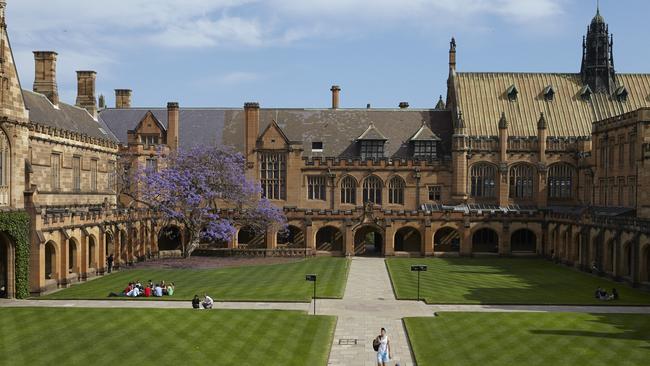
Read the full story here.



To join the conversation, please log in. Don't have an account? Register
Join the conversation, you are commenting as Logout